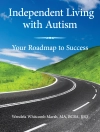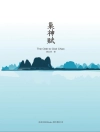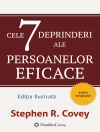In English and Spanish. As a nurse and a father, Rosso poignantly reflects on his grueling struggle and a search for life’s meaning after enduring seven harrowing years stoically supporting his “soul teacher, ” 13-year-old daughter Julieta who died after being diagnosed with cancer at age 6. Following his loss, Rosso begins a courageous trek through an unchartered territory of chaos, despair, forgiveness, and unknowns; which leads him to confronting his pain and himself head-on, leading to deep surrendering, self-care, higher consciousness and loving kindness. An exemplar of Caring Science philosophy for health professionals and other care givers, this book also may be used as a guide to support other parents who, plunged into the pain of losing a child, must also be reborn.
The book offers important advice and new thinking on issues surrounding grief, death and dying, the death of a child, palliative care, cancer, Caring Science, Human Caring Theory, the 10 Caritas Processes (r) Holistic Nursing; Spirituality, Conscious Dying, Healthcare Systems, Nursing and Palliative Care.
READERSHIP This story will touch anyone experiencing grief or death of a loved one, particularly a child. Nurses, Chief Nurse Officers and Healthcare Professionals using Caring Science Theory. Conscious Dying, Palliative Care, and Hospice workers can use it as a guide for families and others as inspiration. Holistic Health Practitioners wanting to incorporate holistic modalities. Families and wider community as a guide to navigate through the death of a child. Cancer patients
Inhoudsopgave
Chapter I My relationship with Julieta, my youngest daughter, who at only six years of age began to live with cancer. I describe key moments in my relationship with her, my family, the medical treatments, the care and her illness. This chapter includes the source of my life and my pain.
Chapter II Palliative care, moments of joy, moments of sadness, pain and death.
Chapter III The two ‘intermediate years’ or years of my denial, my indifference and effort to keep going in a robotic way. I was focusing only on my work, studying, and my financial responsibilities without honoring my great loss or the pain and need for self-care and healing. This chapter includes my solo trip to Paraguay, an event where I experienced a profound confrontation with myself that changed my life. With great agony I faced the reality of a broken heart – an immense raw pain – and I surrendered fully to my sorrow. In Paraguay I developed a relationship with grief which allowed me to focus on myself and my own needs for the first time.
Chapter IV A new perspective and awareness of the self, deep loss, and the need for healing. I began my soul-searching journey and my heart changed. The process of honoring my authentic self and acknowledging our deep connection with the universe gave rise to the discovery of my true self. Only through this incorporation of a new and deeper healing was I able to invite Caring Science to me, to lead me to Caritas so that I was able to become a Caritas Coach. A change of life, a time for forgiveness, love, gratitude and vulnerability.
Afterword
A brief summary of my evolution as a professional and human being ‘living out’ Watson’s Unitary Caring Science and theory of Human Caring.
Over de auteur
Dr. Jean Watson is Distinguished Professor and Dean Emerita, University of Colorado Denver, College of Nursing Anschutz Medical Center campus, where she held the nation’s first endowed Chair in Caring Science for 16 years. She is founder of the original Center for Human Caring in Colorado and is a Fellow of the American Academy of Nursing; past President of the National League for Nursing; founding member of International Association in Human Caring and International Caritas Consortium. She is Founder and Director of non-profit foundation, Watson Caring Science Institute.
Dr. Watson has earned undergraduate and graduate degrees in nursing and psychiatricmental health nursing and holds her Ph D in educational psychology and counseling. She is a widely published author and recipient of many awards and honors, including The Fetzer Institute Norman Cousins Award, in recognition of her commitment to developing, maintaining and exemplifying relationship-centered care practices; an international Kellogg Fellowship in Australia, a Fulbright Research Award in Sweden. The Hildebrand Center for Compassion in Medicine Award Notre Dame University; Academy Integrative Medicine and Healing Award for pioneering work in Caring Science; Japanese International Society of Caring and Peace Chair. She holds fifteen (15) Honorary Doctoral Degrees, including 12 International Honorary Doctorates (Sweden, United Kingdom, (2) Spain, British Colombia and Quebec, Canada, Japan, Turkey, Peru (3), and Columbia, South America).
Clinical nurses and academic programs throughout the world use her published works on the philosophy and theory of human caring and the art and science of caring in nursing. Dr. Watson’s caring philosophy is used to guide transformative models of caring and healing practices for hospitals, nurses and patients alike, in diverse settings worldwide.
At the University of Colorado, Dr. Watson held the title of Distinguished Professor of Nursing; the highest honor accorded its faculty for scholarly work. In 1999 she assumed the Murchinson-Scoville Chair in Caring Science, the nation’s first endowed chair in Caring Science, based at the University of Colorado Denver & Anschutz Medical Center.
As author/co-author of over 30 books on caring, her latest books range from empirical measurements and international research on caring, to new postmodern philosophies of caring and healing, philosophy and science of caring and caring science as sacred science, global advance in Caring Literacy. Her books have received the American Journal of Nursing’s ‘Book of the Year’ award and seek to bridge paradigms as well as point toward transformative models for this 21st century. In October, 2013 Dr. Watson was inducted as a Living Legend by the American Academy of Nursing, its highest honor.












